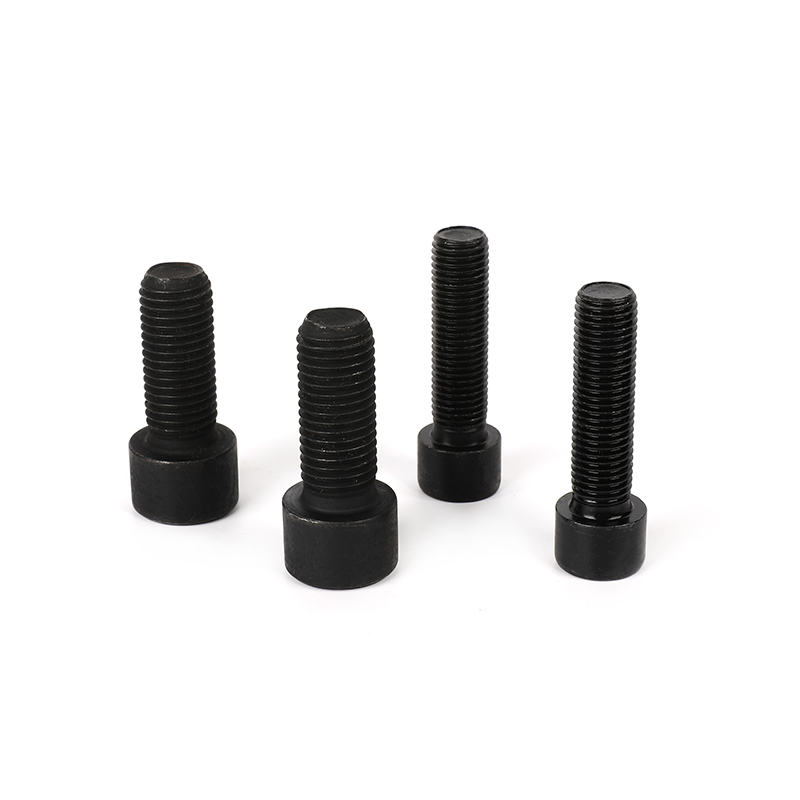Room 102, Building 13, Area A, Wanyang Zhongchuang Park, Ganyao Town, Jiashan County, Zhejiang China.

Hexagon head screws are essential fastening components in many industries, including marine and chemical environments where they are exposed to harsh conditions such as saltwater, humidity, and corrosive chemicals. Ensuring their durability in such environments requires careful consideration of material selection, surface treatments, design optimization, and maintenance practices.
The choice of material is critical for ensuring the screw's resistance to corrosion, mechanical degradation, and environmental wear.
Grade 316 Stainless Steel: Known for its superior corrosion resistance in marine environments due to its high molybdenum content. It resists pitting and crevice corrosion caused by saltwater.
Grade 304 Stainless Steel: Suitable for less aggressive environments but may not perform as well in highly corrosive chemical conditions.
Nickel and Titanium Alloys
Nickel Alloys (e.g., Monel): Excellent resistance to saltwater corrosion, commonly used in underwater applications.
Titanium: Lightweight, strong, and highly resistant to corrosion in marine and chemical environments, though it comes at a higher cost.
Duplex Stainless Steel
Offers a balanced mix of corrosion resistance and mechanical strength, making it ideal for demanding chemical applications.
Surface treatments enhance the natural corrosion resistance of the material and provide an additional barrier against environmental damage.
Creates a thick zinc coating that provides excellent protection against rust and corrosion, especially in marine settings.A thinner zinc layer for moderate protection, though less durable in highly corrosive conditions.
A chemical treatment that removes free iron particles from the surface of stainless steel, enhancing its natural corrosion resistance.Create a chemical-resistant barrier, shielding screws from exposure to aggressive chemicals in industrial settings.

Commonly used for screws exposed to both marine and chemical environments, offering a slick, non-stick surface resistant to corrosion and chemical attack.
Optimizing the design of hexagon head screws can contribute to their durability:
Coarse threads are preferable for marine environments as they reduce the risk of thread galling and are less likely to trap salt or debris.Incorporating rubber or polymer seals can prevent moisture and chemicals from penetrating threaded joints, reducing the likelihood of corrosion.
A robust hexagonal design ensures high torque resistance and minimizes the risk of deformation during installation or use in corrosive environments.
Regular maintenance and inspection are essential to extend the lifespan of screws in demanding environments:
Applying anti-seize lubricants prevents thread galling and eases disassembly after prolonged exposure to harsh conditions.
Routine CleaningCleaning screws to remove salt deposits, chemical residues, and debris helps prevent surface corrosion and prolongs durability.Regularly inspecting screws for signs of wear, pitting, or corrosion allows for timely replacements before failure occurs.
Understanding the specific challenges of the marine or chemical environment allows for tailored solutions:
Cathodic Protection: Combining screws with sacrificial anodes protects against electrochemical corrosion.
Anti-Biofouling Measures: Coatings that resist marine organism attachment reduce long-term damage and corrosion.
Chemical Environments
Chemical Compatibility Testing: Ensuring the material and coatings can withstand the specific chemicals they will encounter prevents premature failure.
Temperature Resistance: Selecting materials and coatings that perform well under the temperature ranges typical of the environment.
Using screws that meet recognized international standards ensures they are designed and tested for durability in extreme conditions:
ISO 3506: Specifies mechanical properties of corrosion-resistant stainless steel fasteners.
ASTM B117: Salt spray testing standard for evaluating corrosion resistance.
NACE Standards: Provide guidelines for materials and coatings in chemical environments.
Ensuring the durability of hexagon head screws in marine and chemical environments involves a multifaceted approach. By selecting appropriate materials, applying effective coatings, optimizing screw design, and adhering to regular maintenance practices, these screws can withstand the rigors of saltwater and chemical exposure. Employing these strategies not only extends the lifespan of the screws but also enhances the reliability and safety of the structures and equipment they secure.

Fix anchorbolts include bolts, washers, nuts and 4PCS cylindrical shields. By tightening the bolts, the shields tubes expand and the components can be...
See Details
Flange bolts are specially used to tightly connect pipes and components with flanges. We produce flange bolts are solid t and durablethat, compling wi...
See Details
The Grade 8.8 black oxide full-thread hexagon socket bolts have an internal hex design and needs to be used with a wrench with a hex head. Its full th...
See Details
Grade 8.8 black oxide full-thread hexagon bolts is a very common fastener and requires a wrench or hex wrench to tighten it. Our hex head bolt meet th...
See Details
This product is made of high-quality carbon steel and undergoes a rigorous heat treatment process. It has high strength, good elasticity and toughness...
See Details
This 304 stainless steel plain full-thread hexagon bolt is a kind of fasteners made of high-quality stainless steel material and has corrosion resista...
See Details
This plain round flat head weld shoulder bolt is a fastener suitable for a variety of welding applications. Its flat head and round head design makes ...
See Details
This Grade 12.9 zinc plated countersunk head square neck plow bolt has the advantages of high precision, high operability, high strength, and high ten...
See Details